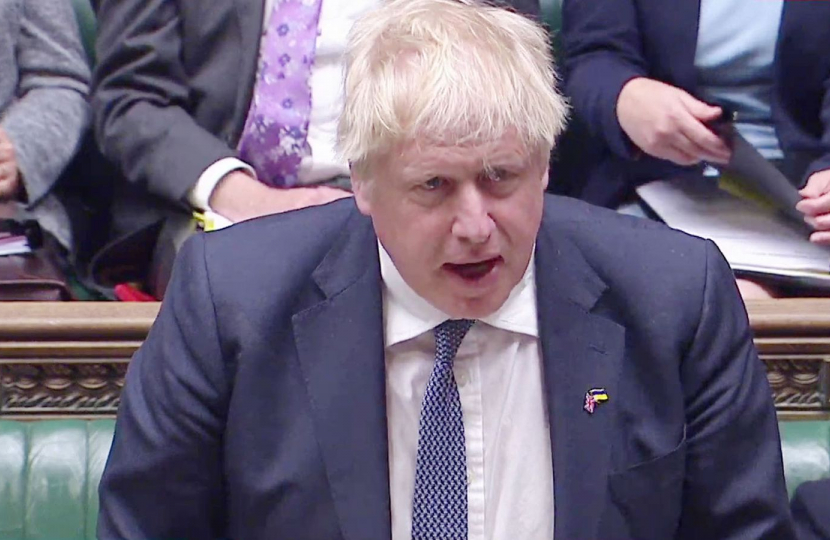
There are two principal charges made against Boris Johnson by his opponents. First, that he is morally unfit to lead. Second, that he is leading the country badly. I’ll address these in turn.
I don’t judge people’s private morals; or rather I do but I oughtn’t. I judge public conduct. And on that, I think we should be forgiving about minor slips - as I was about Dominic Cummings’ driving trip, or Keir Starmer’s beer, or the ‘ambushed by cake’ incident for which the PM was somewhat surprisingly fined.
None of these are resigning matters in my view. Nor are the other events that took place in No 10 without his knowledge, albeit on his watch, and embarrassing and obnoxious as they were. And while we await the enquiry into whether he lied to Parliament, at this stage I am confident that he spoke in good faith at the despatch box (and I don’t believe he’d be so stupid as to lie about something that he knew could be so easily disproved).
For these reasons, based on what we know so far, I will not call for the PM’s resignation over ‘partygate’. I do not accept that his public conduct makes him morally unfit to lead.
The second charge against him is that he is leading the country badly. Here I have some sympathy with the letter that my colleague Jesse Norman wrote to the PM this morning. It is true that we need a more compelling vision to unite behind. To my mind that vision needs to be about national resilience: fixing our broken systems that saw us unprepared for the pandemic, unable to meet the demand for health and social care, unable even to issue passports or visas or driving licences; bolstering our national defences and our domestic supplies of energy and food; supporting the entrepreneurs who create jobs and wealth in all parts of the country; and most of all, strengthening our social foundations by investing in families and communities.
To me, this vision of national resilience gives teeth to the levelling-up agenda that is rightly the focus of the Prime Minister. Because levelling-up is about more than redistributing some public money to the North and the Midlands. It is, as Michael Gove has said, ‘an economic, social and moral mission’, to make our country stronger and more united. And it is this mission that Boris Johnson, for all his personal failings, personally represents.
The Prime Minister stands for the great realignment that the referendum of 2016 and the general election of 2019 introduced to our politics: a turning-back to the values and interests of the ordinary people of our country, in opposition to those of the professional elites who held sway in recent decades. The people who voted against the establishment in those elections expect to see us deliver on the promises that were made. Those promises were made, more than by anyone else, by Boris Johnson. He is the man to deliver them.
The Prime Minister, flaws and all, has the personality and the courage to inspire people to believe in him - not as a moral paragon, but as a fighter who will do what it takes to win. Win for whom, you ask? For himself certainly, but also for the country, for it is the way of leaders to identify their interests with those of the nation.
Working in No 10 as the PM’s Political Secretary in the second half of 2019, I saw him up close as he faced down a hostile majority in Parliament and the massed ranks of the establishment to get a deal with the EU that everyone said he wouldn’t get, then forced Parliament to dissolve itself, and then swept the board in the election that followed.
He was elected to deliver for the country, and especially for those people and places disregarded and disempowered by British politics for so long. We Tory MPs must not dismiss those people and places this time. We have a duty to help the PM do what he was sent to No 10 to do: to unite and level up, and to strengthen our country for the shocks that the times will throw at us.




